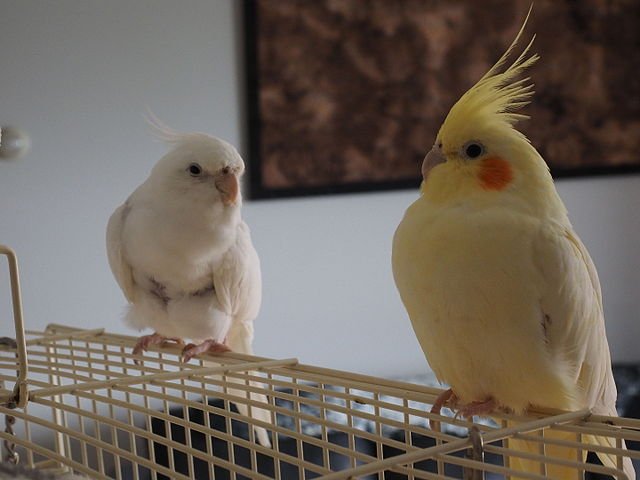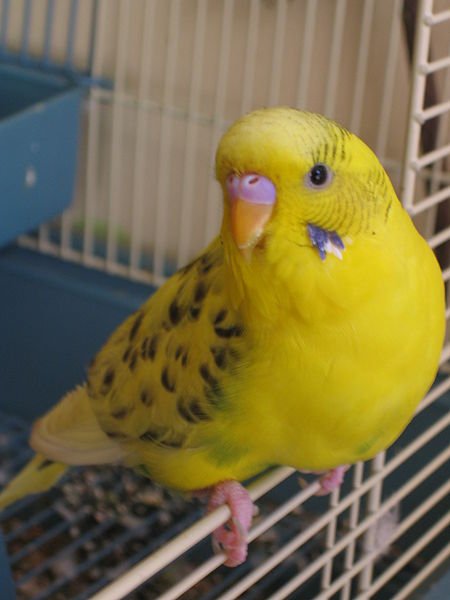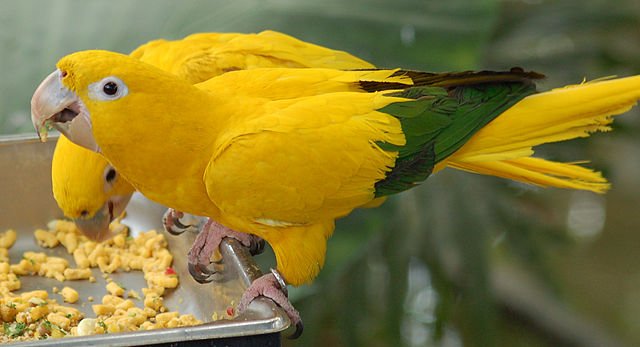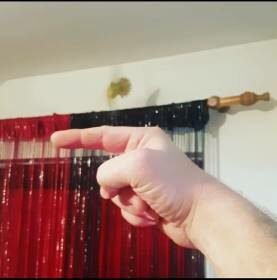Since ages, pets have been the most loyal companion of man. And whenever someone wanted an avian companion, parrots have always topped the list. Their playful and lively nature has made them everyone’s favorite. The sweet songs filling up our home when we come back after a tiring day is all we need for rejuvenation. Their morning chirpings charge us for a long day ahead. But sometimes, or for some, these soft sounds could be perceived as noise. They generally prefer a relatively quieter species. Let’s know what the term ‘quiet parrot’ actually means.
A Quiet Parrot – Myth or Reality?
The only quiet parrot in this world is a dead parrot. How in the world can a bird not chirp? And when we say parrot, chirpings include singing and talking too. If your little birdie is quiet, all is not well with him. A bird is quiet only when he is depressed or sick. So, if you are planning for complete silence, why bring a pet home!
A healthy bird would always be his cheerful self. Just as your pet dog has an inherent nature of barking, your pet parrot would talk or sing. You have to be prepared for his sounds to be of a certain level before you choose him as your companion. And when we talk about parrots’ quietness here, it is relative.
A daily squawk could just be normal for you if you are living in a detached or a country-side house. But it is a noise and that too, of very high decibels if you are living with him in an apartment. So, to choose your perfect companion, let’s first look at the factors which give us a little idea if that species would be that loud or not.
Factors deciding how loud a parrot can be
Although there are no set rules to know if any parrot species would be quieter than the other, scientific reasoning and observations by many parrot owners have brought forward some deciding factors when it comes to their decibel range.
Size of the parrot species
It is generally believed that the size of a parrot doesn’t stop him from being talkative or playful all day long. But here we aren’t talking about their continuous soft chirpings. We are talking of sounds that can be perceived as noise and them reaching high levels on the decibel meter. So, if you don’t want an overly loud parrot companion, go for a small-sized parrot as against a large one and to back this logic, we can put science to use. A small parrot always means a small lung capacity. He might chirp all day long or may squawk a few times a day, but the sound can’t be produced at such high levels to be audible to the next 3 apartments on your floor.
Gender of the bird
This one comes straight from the nature of parrot species. In parrots, male species have always been a bit louder than their female counterparts. Female parrots tend to be on a quieter and softer side of the scale. So, if you have already your heart fixed on a particular parrot species and still want your birdie to be a little soft on ears, go for a female over a male one.
The way they have been raised
As observed by many parrot parents over the years, a hand-raised bird is always quiet and soft to deal with. This surely has a logic too. A hand-raised bird is comfortable with human presence and is not alarmed when his habitat changes. Hence, no loud noises. Whereas a parent-raised bird is not used to live with humans and is quite noisy each time someone gets closer to him.
Area to which the species belong
The area where the species belong to has a large impact on deciding their natural behavior. The African species have always been a bit lower in volume than against the South American ones. The rationale behind this is the fact that the South American parrot species have always lived in mixed groups rather than within their flock only as in the case of the African species. This has made their voices inherently louder as they compete to get their voices heard within their diverse community in the wild. So, choose African species over the South American ones for their relative quietness.
7 Quiet Parrot Species
Now as we know, how we can choose a parrot who can be a little less harsh on our ears, let’s know a little about some of the most favorite quieter parrots around the world.
Cockatiel
Cockatiels have been a favorite among the first time parrot parents not only for their small-size but also for their quiet nature. They are one of the few parrot species who can be taught even to behave in a certain manner. Like many other parrots, they are also good at picking up sounds and words. They are their usual chirpy-self most of the time but all these chirps are soft on ears. The only loud voices you may hear could be their contact calls for you or a few squawks at dusk and dawn. Try not to leave them alone for long periods to avoid this.

Budgerigar
The most petted parrot in the world is remarkable learners when it comes to talking. They can continuously chatter all day but lack the capacity of screaming or screeching loud like their larger cousins. They are one of the quietest bird pets and will scream only if you do not provide them with enough toys or personal attention to keep them happy.

Lovebird
Lovebirds are the tiniest member of the parrot family. Although they hardly learn to talk or mimic noises like other parrot species, they whistle and chirp all day. But they have this natural call which is a shriek at a high-pitch and can create a ruckus if left alone. They are best kept in pairs. That way they will not call you out the whole day for attention and would be happier too with their mate.
Senegal Parrot
These little beings are said to be one of the best parrots to keep while in an apartment because of their inability to shout at the top of their lungs. All they can do is clucking and whistling all day long and their voices can hardly be heard out of a closed room. Try to get them the biggest cage possible and they will never bother you again.
Pacific Parrotlet
These little birds can learn to talk a few words and phrases but are generally quiet throughout the day. But that doesn’t mean you will not hear them at all. They only chirp and make noise at low levels to communicate They surely can’t squawk like other parrots which makes them perfect to be kept as a pet in an apartment home. Keep them entertained by giving some toys and they will keep chirping softly all day long.
Green-cheeked Conure
If you want a conure without all those screeching and shrieking, then a green-cheeked conure fits the bill perfectly. The conures generally get abandoned by their parents as either the family or the neighbors can’t handle their noise. But the green cheeked conures are famous for their quiet nature and can sometimes be quieter than a budgie or a cockatiel. All they want is your love and time and they are their happy quiet-selves.

Pionus Parrot
They are a medium-sized parrot and are famous among apartment dwellers if they want a little larger parrot than a budgie or cockatiel. They aren’t much of a good talker but can still learn a few words. Their speech can be comprehended only by their parents as it is a bit raspy. They are a bit low on energy levels and thus are less playful. But that doesn’t mean they aren’t good companions. They are very devoted pets and love the attention showered on them.
Just as bringing a baby home means constant cries, having a pet means a constant chatter and with avians, some chirpings and contact calls. If perfect silence is what you are looking for, it is better not to have them at all than abandoning later. Before finally bringing a pet parrot home, always do as much research as you can to know your would-be companion’s behavior.
Go to a breeder that keeps multiple chicks. Make sure to handle all of them once and then instead of choosing the one yourself, let the little bird choose you. That would mean he fell in love with you at first sight. He will always be his cheerful self and won’t be a screaming one. But don’t forget to put your side of love to nurture that bond.



